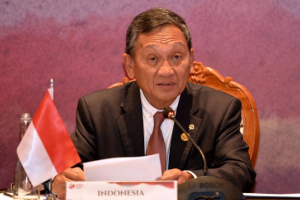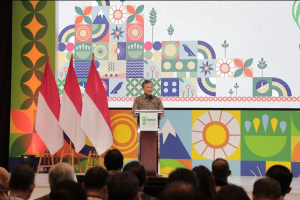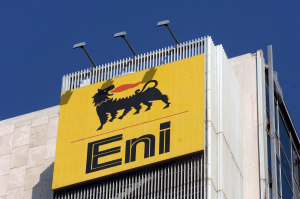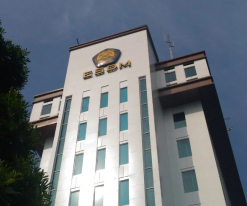Indonesian state-owned enterprises spearheading hydrogen collaboration for a green future despite shortcomings in its roadmap
Indonesian state-owned enterprises (SOEs) are currently taking the lead to forge significant collaboration with various stakeholders to develop and utilize hydrogen for clean and sustainable energy sources.
For investors, it is a business opportunity as Indonesia's renewables and gas projects will provide ample opportunity for massive production of hydrogen to meet future demand.
Indonesia integrates hydrogen to achieve net-zero emissions
Indonesia integrated hydrogen utilization to its energy sector roadmap because the country has abundant gas resources and ongoing renewable power projects providing a strong foundation to produce blue and green hydrogen.
"One of the main strategies to achieve carbon neutrality on the supply side includes the massive development of renewable energy, with a focus on solar, hydro, geothermal power generation, and hydrogen," said Arifin Tasrif, the Minister of Energy and Mineral Resources (ESDM)
With the integration of hydrogen to the country's energy roadmap to achieve net-zero emissions by 2060, the country recognizes hydrogen as a significant future energy source with all of its advantages.
"The advantages of utilizing hydrogen in the power sector include its role as an energy storage system, complementing batteries with better operational cycles. Green hydrogen, produced from solar and wind energy, can be combined with fuel cell technology to generate green electricity suitable for the archipelago model, resulting in green and stable electricity," said Yossy Noval, the Director of gas power plant operations at PLN Nusantara Power.
Unfortunately, about one-quarter of the roadmap by 2050, Indonesia will need technologies that are not currently commercially available in Indonesia.
This includes hydrogen, hydrogen based fuels, nuclear energy, and carbon capture, utilization, and storage.
If Indonesia is successful in implementing the net zero by 2060, it will require Indonesia to attract US$ 8 billion in investments annually by 2030.
By June 2030, the National Research and Innovation Agency (BRIN) will introduce the national hydrogen strategy roadmap, including pilot projects or demo plants, development and market introduction, and market penetration, along with its economic value-added effects.
BRIN responds to setbacks
However, Eniya Listiani Dewi, a senior researcher at the Center for Energy Conversion and Conservation Research at BRIN states, it is not enough and urges the Ministry of Energy to develop a comprehensive national hydrogen strategy encompassing hydrogen potential but also the entire production, distribution, and utilization chain in Indonesia.
This will be the future reference providing certainty for industry players involved in hydrogen development in the country. A clear and reliable roadmap is essential to support and drive the development of hydrogen initiatives from this point forward.
"I believe the turning point for hydrogen prices will occur in 2030, but we cannot wait until then to start utilizing hydrogen; otherwise, we might lag behind as a country," said Eniya.
As of now, there are 20 pre-feasibility study projects exploring hydrogen technologies led by industry players across Indonesia.
State-owned enterprises collaborate with stakeholders
Recently, collaboration in development and utilization of hydrogen has been increasing. Previously, Pertamina had forged a partnership with Toyota to embrace the hydrogen-based vehicle ecosystem.
In addition, Pertamina also discussed partnership with other major automotive brands such as Honda and Hyundai, aiming to accelerate the development of hydrogen-powered mobility solutions.
"We are working together with major OEM (original equipment manufacturer) manufacturers like Toyota, Honda, and Hyundai to develop the hydrogen ecosystem," said Fadli Rahman, the Director of Strategic Planning & Business Development at Pertamina New Renewable Energy (Pertamina NRE).
To further this effort, Pertamina through Pertamina NRE and Pertamina Patra Niaga plans to establish a hydrogen refuelling infrastructure.
Furthermore, Pertamina, Pembangkit Listrik Negara (PLN) and Pupuk Indonesia also formed partnerships with multiple private companies in enhancing supply of hydrogen. Notable collaborations such as with Chevron, Hydrogène de France (HDF), and Air Liquide.
Tag
Already have an account? Sign In
-
Start reading
Freemium
-
Monthly Subscription
30% OFF$26.03
$37.19/MonthCancel anytime
This offer is open to all new subscribers!
Subscribe now -
Yearly Subscription
33% OFF$228.13
$340.5/YearCancel anytime
This offer is open to all new subscribers!
Subscribe now






